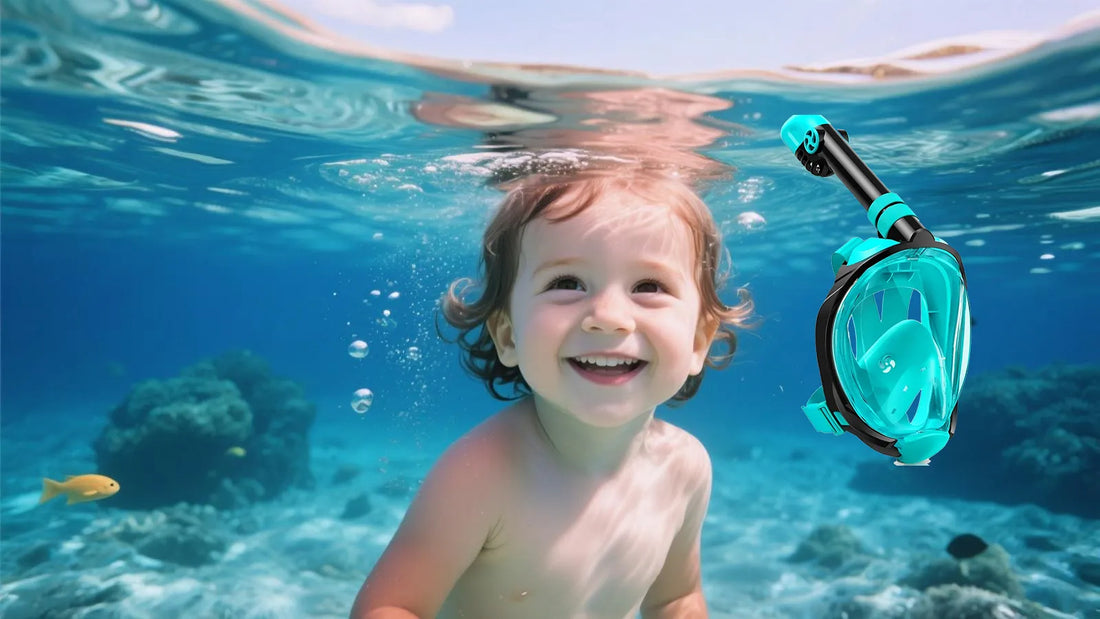Scuba diving is a thrilling adventure that allows you to explore the underwater world, but it can also raise concerns about ear health. Many divers experience discomfort or pain in their ears during a dive, leaving them wondering: does scuba diving hurt your ears? The answer lies in understanding the physics of pressure changes and how your ears respond to them. This article will explore the causes of ear pain during scuba diving, how to prevent it, and what to do if you experience discomfort.
Understanding Ear Pain During Scuba Diving
Ear pain during scuba diving is often caused by pressure changes as you descend or ascend in the water. The human ear is divided into three parts: the outer ear, middle ear, and inner ear. The middle ear is an air-filled space that is particularly sensitive to pressure changes. When you dive, the water pressure increases, and if the pressure in your middle ear doesn't equalize, it can cause pain or even injury.
The Role of Equalization in Preventing Ear Pain
Equalization is the process of balancing the pressure in your middle ear with the surrounding water pressure. This is typically done by gently blowing air through your Eustachian tubes, which connect your middle ear to your throat. Proper equalization is essential for preventing ear pain and protecting your hearing during a dive. Divers who fail to equalize properly may experience barotrauma, a condition caused by pressure imbalance that can lead to pain, hearing loss, or even a ruptured eardrum.
Common Causes of Ear Pain While Diving
Several factors can contribute to ear pain during scuba diving. These include descending too quickly, not equalizing frequently enough, or having a pre-existing condition like a cold or sinus infection that blocks the Eustachian tubes. Additionally, inexperienced divers may not be familiar with proper equalization techniques, increasing their risk of ear discomfort. Understanding these causes can help you take proactive steps to protect your ears.
How to Prevent Ear Pain During Scuba Diving
Preventing ear pain starts with proper preparation and technique. Before diving, ensure you're in good health and free from congestion. During the dive, descend slowly and equalize frequently, especially during the first few meters. If you feel discomfort, stop descending and try equalizing again. Using specialized earplugs designed for diving can also help protect your ears, but they should be used with caution to avoid creating pressure imbalances.
What to Do If You Experience Ear Pain
If you experience ear pain during a dive, it's important to address it immediately. Stop descending and attempt to equalize. If the pain persists, ascend slowly to a shallower depth and try equalizing again. Avoid forcing equalization, as this can cause injury. After the dive, monitor your ears for any signs of discomfort, hearing loss, or fluid drainage. If symptoms persist, consult a medical professional to rule out barotrauma or other ear injuries.
The Long-Term Impact of Scuba Diving on Ear Health
While occasional ear pain during diving is common, repeated incidents can have long-term effects on your ear health. Chronic barotrauma can lead to permanent hearing loss or damage to the eardrum. To protect your ears, always follow safe diving practices, equalize properly, and avoid diving when you're unwell. Regular check-ups with an ear specialist can also help monitor your ear health and catch any issues early.
Tips for Safe and Comfortable Diving
To ensure a safe and enjoyable diving experience, follow these tips: always dive within your limits, practice proper equalization techniques, and stay hydrated. Avoid diving if you have a cold or sinus infection, as this can increase the risk of ear pain. Consider taking a diving course to learn advanced equalization methods and improve your overall diving skills. By taking these precautions, you can minimize the risk of ear pain and focus on enjoying the underwater world.
Scuba diving doesn't have to hurt your ears if you take the right precautions. By understanding the causes of ear pain and practicing proper equalization techniques, you can protect your hearing and enjoy a safe and comfortable dive. Whether you're a seasoned diver or a beginner, prioritizing ear health is essential for making the most of your underwater adventures. So, the next time you gear up for a dive, remember these tips and dive with confidence!

